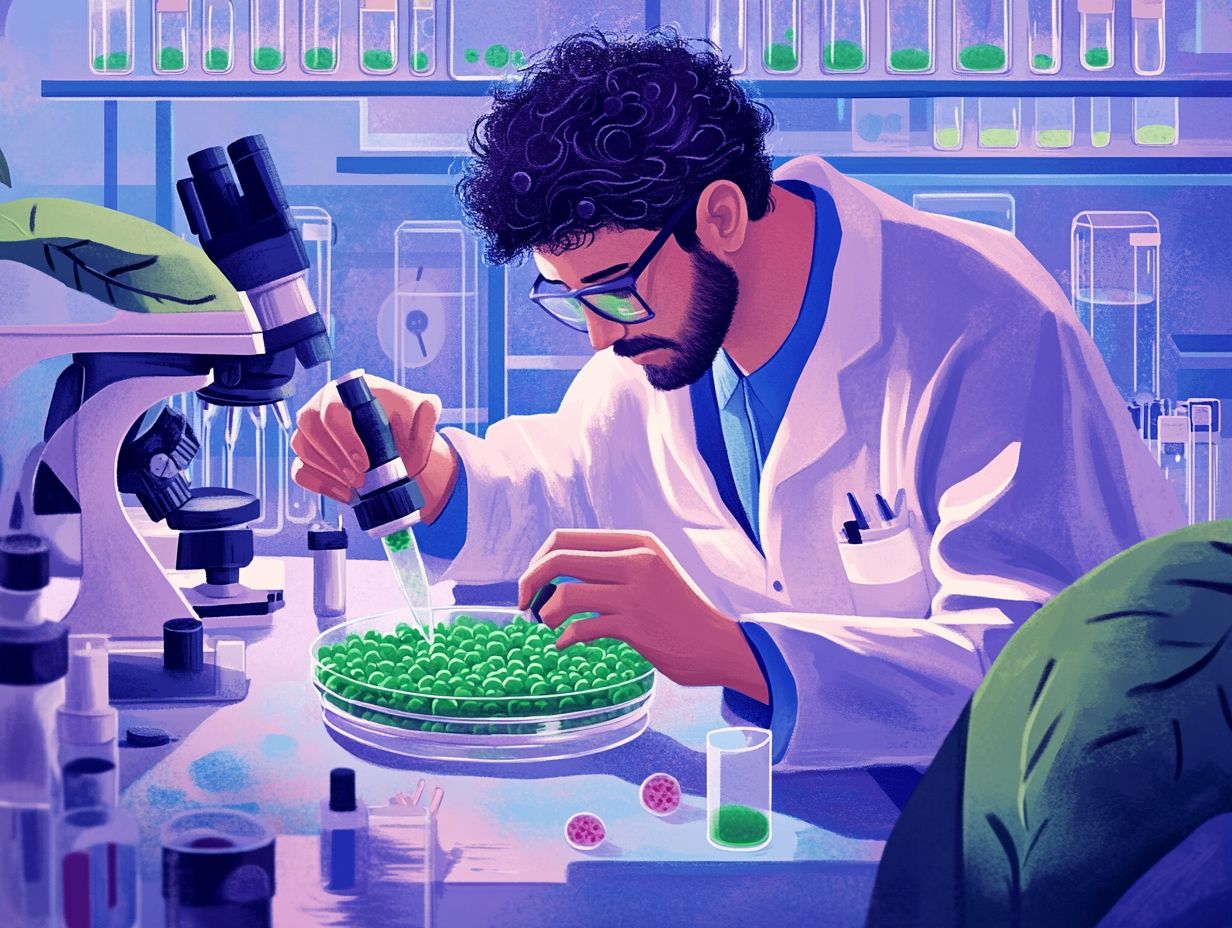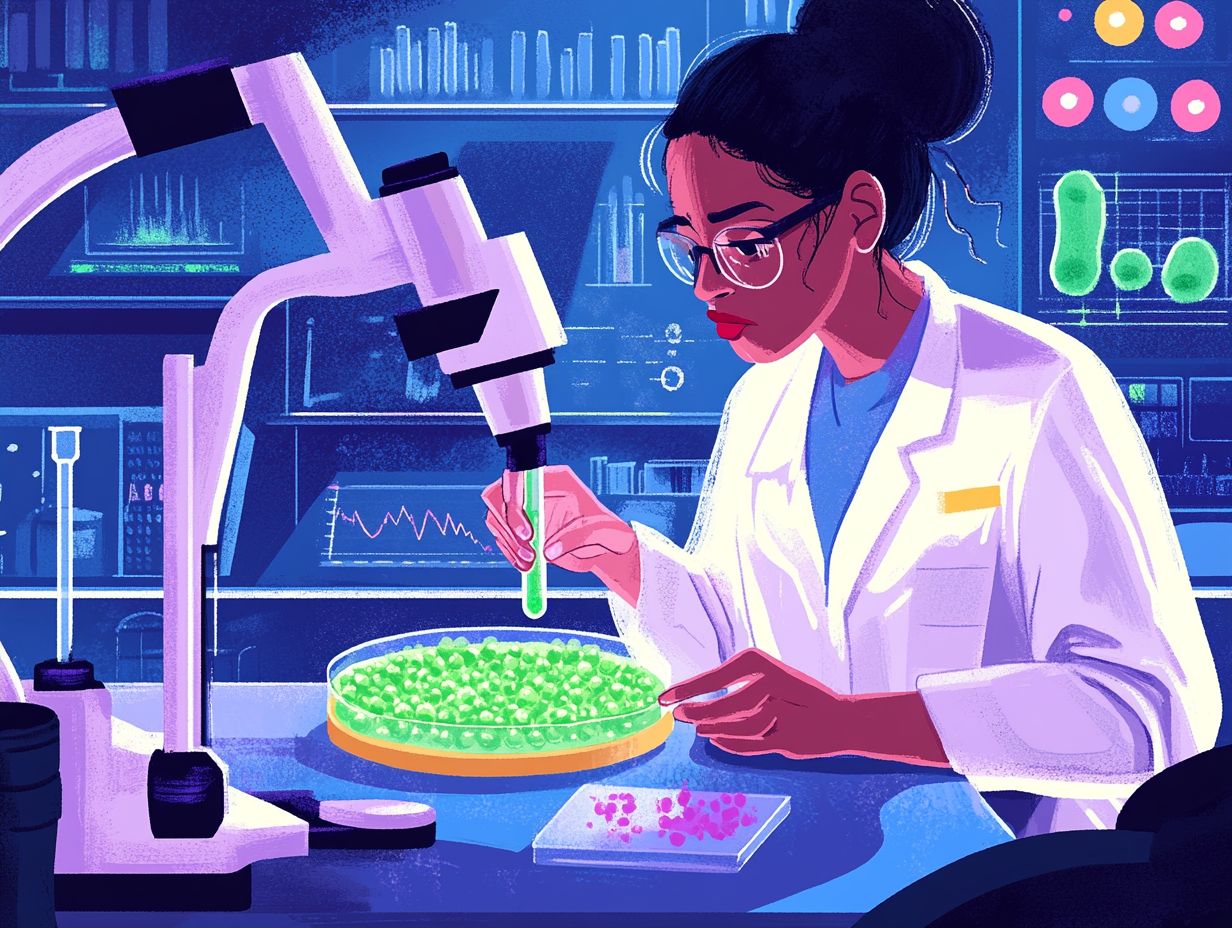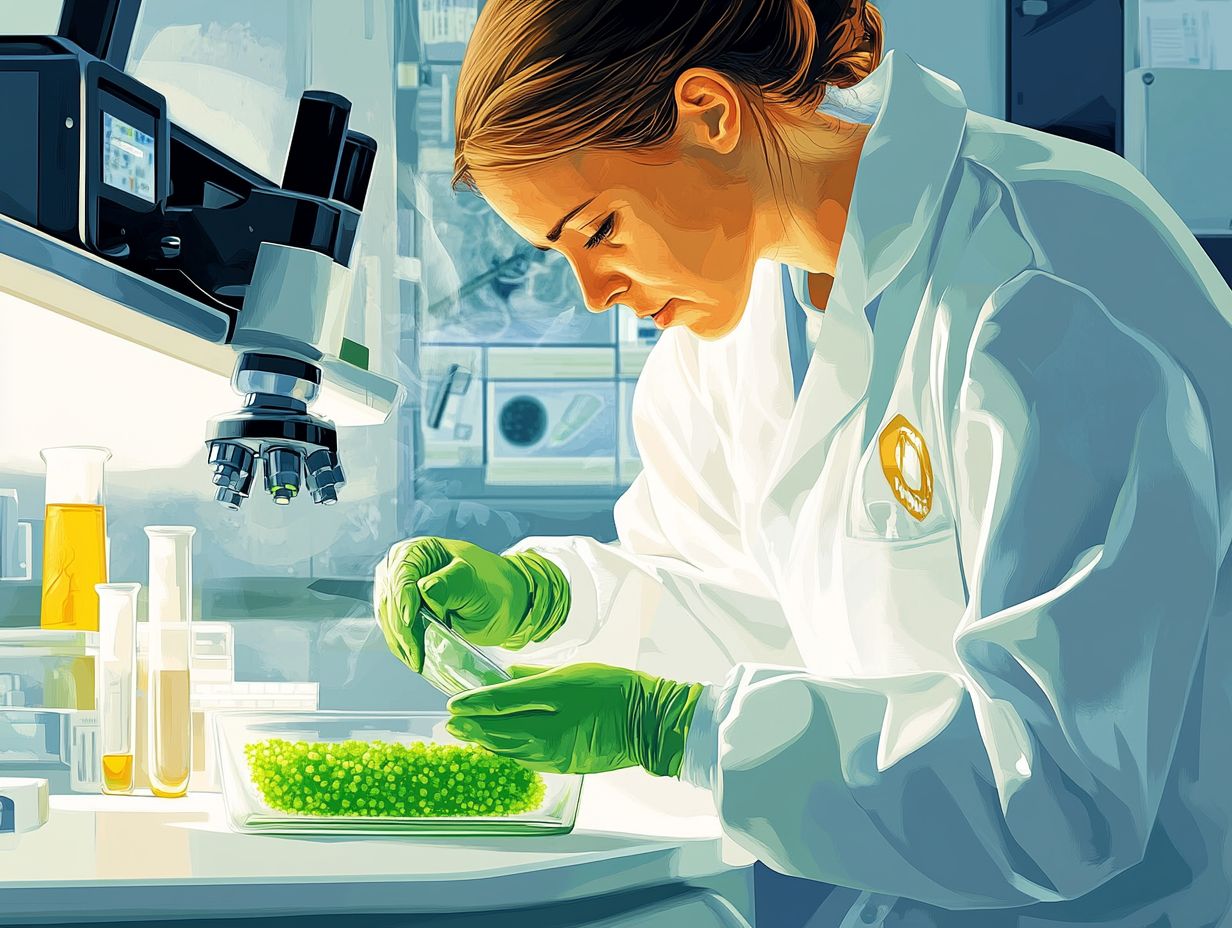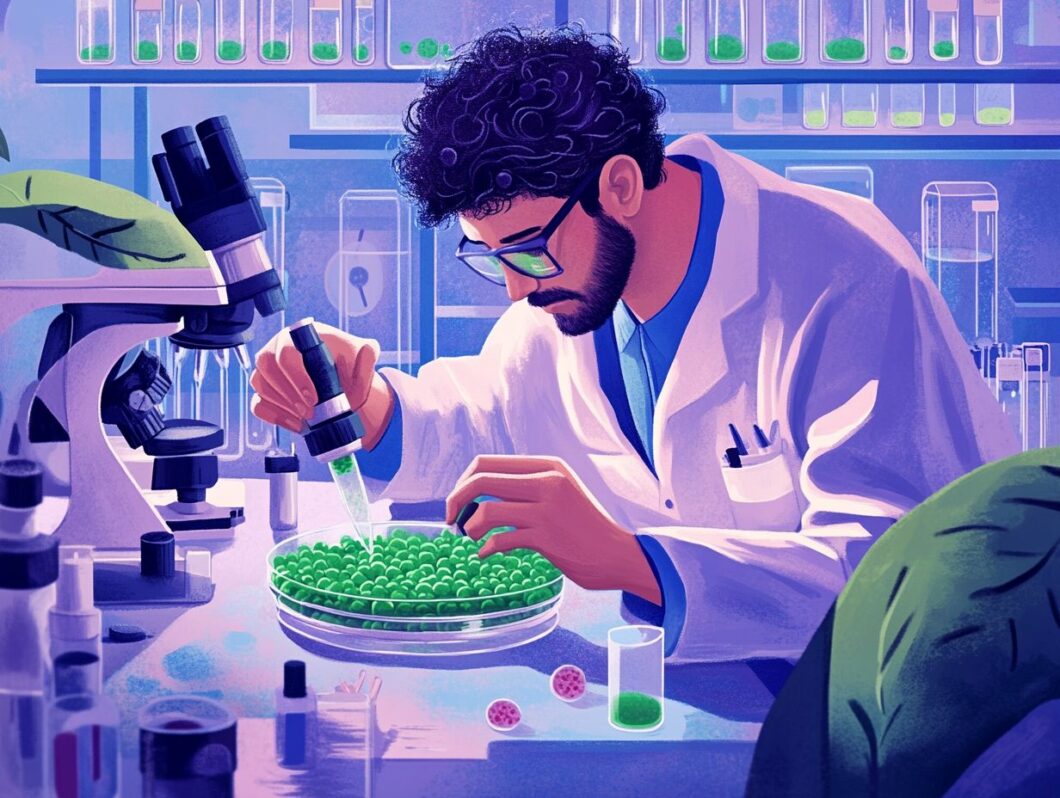The quest for the fountain of youth has captivated humanity for centuries, and recent breakthroughs in anti-aging research are bringing us closer to understanding and potentially reversing the aging process.
In my exploration of this topic, I will examine the latest discoveries and advancements that are reshaping the landscape of anti-aging science, highlighting promising treatments and therapies that could effectively address age-related issues.
I will also delve into the controversies surrounding this field, including ethical concerns, and consider what the future may hold for anti-aging innovations and their impact on society.
This journey through the cutting-edge world of anti-aging science promises to be both intriguing and enlightening.
Key Takeaways:
Overview of the Field

I focus my work on the field of aging research, where I explore the complex mechanisms underlying biological aging and its connection to age-related diseases. This involves conducting health evaluations and identifying biomarkers that may indicate an individual’s biological age.
As the global population continues to age, it has become increasingly important to understand health issues such as neurodegeneration, cognitive impairment, cancer, heart disease, and dementia.
I draw inspiration from notable figures in this field, like Dr. Tony Wyss-Coray from Stanford University and Dr. Daniel Belsky from the Columbia Mailman School of Public Health, who have made significant contributions to NIH-funded research, including the Dunedin Longitudinal Study and the innovative concept of DunedinPACE.
Recent Breakthroughs in Anti-Aging Research
Recent breakthroughs in anti-aging research have underscored the potential of various therapeutic interventions, such as calorie restriction and the role of TIMP2, in slowing down biological aging and improving synaptic plasticity, which in turn enhances cognitive function as we age.
Studies published in Nature Aging and conducted by researchers like Michael Snyder have provided critical insights into the aging process. These findings highlight the importance of further exploration into the DunedinPACE framework for measuring biological age and its impact on age-related diseases.
Notable Discoveries and Advancements

In recent years, I have observed significant advancements in our understanding of biological aging, particularly through the identification of biomarkers and the development of aging clocks that facilitate health evaluations and predictions concerning healthy longevity.
This research is crucial as it allows me to quantify the aging process at a cellular level, providing valuable insights into how lifestyle choices and environmental factors can influence one’s biological age.
Organizations like the National Institutes of Health (NIH) have been instrumental in funding studies that explore the complex relationship between specific biomarkers—such as telomere length and epigenetic changes—and the rate of aging.
Furthermore, companies like Alkahest Inc. are actively investigating therapeutic avenues based on these findings, including the potential of plasma-based treatments that may rejuvenate aging tissues and improve overall health outcomes.
As these advancements continue to develop, they hold the promise of not only extending lifespan but also enhancing the quality of life in later years.
Promising Anti-Aging Treatments and Therapies
I focus on promising anti-aging treatments and therapies that address various facets of the aging process.
My approach includes enhancing muscle function, mitigating neurodegeneration, and modifying gene expression.
I utilize innovative methods such as rapamycin and the application of umbilical cord blood to achieve these objectives.
Potential Solutions for Aging-Related Issues

Addressing aging-related issues such as cognitive impairment and declining muscle function requires focused therapeutic interventions that target the underlying causes of these health challenges.
For instance, I have observed that recent studies highlight the effectiveness of cognitive training programs designed to enhance memory and executive functions in older adults. These programs often incorporate engaging activities like puzzles and memory games to stimulate the brain, leading to measurable improvements in cognitive performance.
Additionally, resistance training has demonstrated a significant ability to boost muscle strength and functional mobility, indicating that physical interventions can reverse some effects of aging.
A case study involving a group of seniors participating in a structured exercise regimen illustrated not only physical gains but also improvements in mood and overall quality of life, thereby underscoring the holistic benefits of targeted therapies.
Controversies Surrounding Anti-Aging Science
The field of anti-aging science presents several controversies, particularly regarding ethical concerns and criticisms surrounding the pursuit of extending life and redefining healthy longevity medicine. For more insights, read about the New Breakthroughs in Anti-Aging Science: What to Expect This Year.
These issues continue to provoke discussions among researchers and ethicists, highlighting the complexity of this evolving area of study.
Ethical Concerns and Criticisms

Ethical concerns regarding anti-aging research often focus on the implications of manipulating the aging process and the potential health issues that may arise from extending life without enhancing its quality.
I find that the debate frequently centers on whether society is equipped to manage the consequences of significantly longer lifespans, including increased healthcare costs and the societal implications of a growing elderly population.
Researchers funded by the National Institutes of Health (NIH) are actively investigating crucial areas such as the biological mechanisms of aging, with a primary emphasis on improving healthspan rather than merely extending lifespan. This work entails addressing the likelihood of age-related diseases and their effects on overall well-being.
Moreover, ethical dilemmas emerge regarding access to anti-aging therapies, as disparities in access could worsen existing inequalities. As I engage with the scientific community on these critical issues, the conversation surrounding the balance between life extension and quality of life becomes increasingly relevant. For insights on recent advancements, check out the article on New Breakthroughs in Anti-Aging Science: What to Expect This Year.
The Future of Anti-Aging Science
The future of anti-aging science presents significant promise, with anticipated advancements in therapeutic interventions that have the potential to profoundly influence the aging process and enhance the quality of life for our aging population.
These developments could fundamentally reshape societal structures and healthcare systems.
Expected Developments and Impact on Society
I anticipate that expected developments in anti-aging therapies could profoundly impact society, particularly in how we address healthcare for an increasingly aging population. These advancements may lead to longer, healthier lives.
As these therapies emerge, they are likely to shift the paradigm of medical interventions, placing greater emphasis on preventative care rather than reactive treatments. With a focus on cellular rejuvenation and genetic manipulation, healthcare systems may need to adapt to integrate these innovative approaches.
The societal implications could be significant. As the perception of aging evolves from a narrative of decline to one of vitality, the stigma associated with growing older may diminish. This change can cultivate a culture that values the contributions of older adults, encouraging their active participation in community and workforce initiatives.
Consequently, I foresee that public discourse will evolve to emphasize lifelong health and well-being, rather than simply focusing on longevity.


